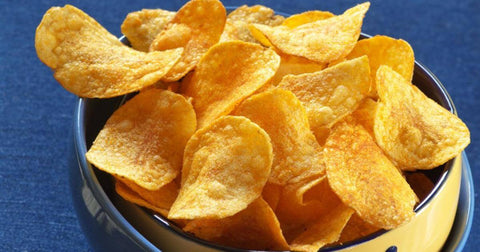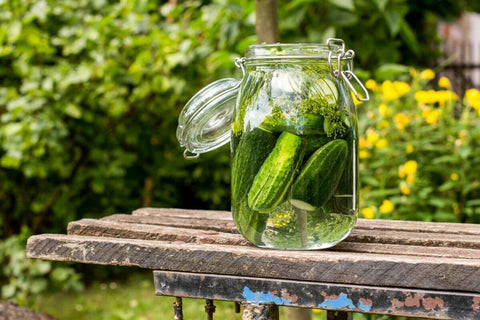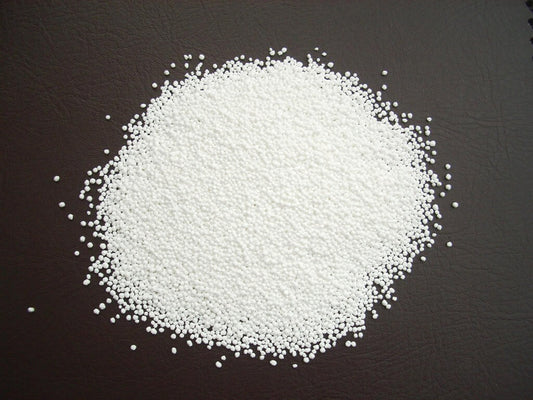While it may be a difficult word to pronounce, potassium benzoate is not just one of the well-known ingredients but also well-liked! It is a sneaky but effective food preservative.
One that keeps your favourite snacks and beverages free from the evil forces of spoilage and decay. It is one ingredient that keeps your favourites fresh and appetising. From soft drinks to beverages, snacks and salad dressings the heroic effect of potassium benzoate is felt.
While it might be a mystery, Chewwies seeks to unravel it! This post divulges all the sweet secrets of the preservative. Revealing how it is used, and all you need to know about its presence in food.
So read on!
The food hero - Potassium benzoate
It is a white, vegan-free, odourless powder produced by mixing an acid and a salt. The acid, benzoic acid occurs naturally. Plants, animals, and fermented products contain this acid.
Potassium salts, on the other hand, are produced from salt beds or specific minerals. Potassium benzoate inhibits the growth of bacteria, yeast, and mould, thus the perfect preservative for food, beauty, and skincare products.
Shampoos, conditioners, facial cleansers, and moisturisers are but a few beauty and skin care products rich in this component.

Some of the reasons potassium benzoate is frequently used
Here are some of the reasons potassium benzoate is loved and widely used;
It is elusive
PB dissolves well in water, making it perfect for diverse foods and beverages. It comes with no added smell or taste. Thus, you won't even notice it's protecting your goodies.
Effective preservative
What would a bag of potato chips be without PB? Certainly a stale and downright untasty pack. But an addition of PB makes those chips stay crispy and delicious. It acts as a guardian, fending off the pesky microbes that want to ruin your endearing chips into something else.
Enhances the taste of foods
It makes food more enjoyable by removing off-taste or flavours. While potassium benzoate is a remarkable preservative, it also enhances the flavours of foods. This gives it an edge over other preservatives!
What foods contain potassium benzoate?
You've probably consumed potassium benzoate-containing items without knowing. It is present in a wide range of packaged foods. Some of them are;
- Soda.
- Flavoured drinks.
- Fruit and vegetable juices.
- Candy.
- Chocolate.
- Pastries such as sweets.
- Sauces.
- Salad dressings.
- Pickles and olives.
- Certain margarines, jams, and jellies are used as spreads.
- Processed meats and fish as in salted or dried fish and seafood.
- Some mineral and vitamin supplements may also contain this preservative.
To be sure, take a look at the ingredient list. It could also be written as E212, the European food additive number.
Is potassium benzoate safe?
Potassium benzoate is popular in highly processed foods. Scientists advise a reduced consumption of such foods, as they may contain fewer nutrients and vital chemicals.
So, some agencies, the likes of World Health Organization (WHO), Food and Drug Administration (FDA), and a ton other regulatory bodies may consider it safe, moderation is crucial. Lastly, always read product labels to prevent allergies.
Side effects of potassium benzoate
This appealing preservative might have an ugly side. When foods rich in potassium benzoate are exposed to heat or light, benzene is formed. Benzene has been suspected to spark severe allergic responses. Especially in persons who have eczema, itchy skin, or frequent runny nose.
While benzene from sources like motor vehicles, pollution, or cigarette smoke are established risk factors for cancer. More research is needed, in the case of swallowing. Overall, further research is needed to understand the health implications of this preservative.

In conclusion
Potassium benzoate is the hero we never knew we needed. It silently protects our favourite treats from spoilage. So while it may appear to be a complicated chemical, like molasses sugar its importance can not be overemphasised.
Hence, next time you enjoy a crispy chip or a fizzy soda, remember the salient ingredient, PB, fighting the good fight against spoilage, one snack at a time.


